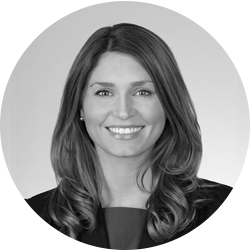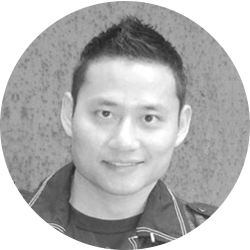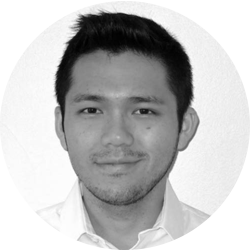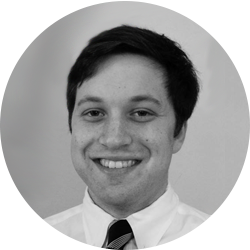For ophthalmologists-in-training, opportunities to attend meetings are often few and far between. This year, several medical students, residents, and fellows were awarded grants to attend ME Live 2015, thanks to support from industry. Grant recipients were selected based on submitted research abstracts. Recognizing this group would have a unique perspective on this experience, I asked a few of the medical student, resident, and fellow attendees to share their reflections on ME Live and what excites them most about the future of ophthalmology.
–Jessica Ciralsky, MD

Michelle Crouse
Michelle Crouse is a medical student at the Medical University of South Carolina in Charleston. She may be reached at crousem@musc.edu.
“I found out about ME Live through an attending at my medical school and was encouraged to apply for one of the research grants, which I was lucky enough to win. From the meeting, I have taken away loads of great advice aimed at young residents and those just starting out in private practice, along with improved knowledge of surgical techniques and advances.
I appreciated how ME Live aimed to reach young doctors. From the kickoff event and throughout the weekend, I felt there was a great focus on educating and advising those new to the profession. The presenters were all incredibly knowledgeable, honest, and welcoming.
As a medical student, many of the technologies and treatments presented were new to me. I was particularly interested in the presentation on the Kamra (AcuFocus) and Raindrop (ReVision Optics) corneal inlays and the discussion on new treatments in glaucoma. Most of all, the layout of the presentations—featuring a panel of experts with individual specialists giving short presentations and leading discussions with their peers—kept my attention better than the typical long presentation format.”

Kunyong Xu, MD
Kunyong Xu, MD, is a fourth-year resident at Queen’s University School of Medicine in Kingston, Ontario. He may be reached at 12kx2@queensu.ca.
“I found out about ME Live through my residency program director. I thought it would be a great opportunity to learn about innovative ideas and techniques in ophthalmology. Also, there’s nothing like being in a room of like-minded people who are inspirational and refreshing and learning current strategies that are working for others as residents, fellows, or staff.
ME Live provided me with a great educational opportunity to talk to people one on one and to learn more about the field of ophthalmology. This conference also gave me the chance to reflect on my research and to be inspired by other people’s perspectives.
As an interactive, technology-driven symposium, the meeting provided an opportunity for instantaneous communication and interaction between speakers and the audience. Upon leaving, I found there were a lot of areas covered that were intriguing to me, especially the discussion on complex cases.”

Chetra Yean
Chetra Yean is a medical student at the Albert Einstein College of Medicine in New York. He may be reached at yean@mail.einstein.yu.edu.
“I heard about ME Live through one of my mentors. After taking a look at the agenda, I was inspired to attend, as I felt that the conference was geared toward a younger generation of doctors. The incorporation of social media and the interactive audience dynamics spoke to the collaborative nature of the conference, which I believe is very important in the increasingly connected world of ophthalmology.
As a budding physician (and hopefully ophthalmologist), I did not realize how business and law-oriented entering into practice could be, which seems especially important during those first couple of years out of fellowship. Medical economics, particularly the day-to-day business aspect, is not something that has been overly emphasized during my education, and I think it is an important topic with which all doctors should be familiarized. Attendees were happy to share their experiences with private practice and academia, which I found to be very helpful.”

Evan Zeldin
Evan Zeldin is a second-year medical student at the Medical University of South Carolina in Charleston. He may be reached at zeldin@musc.edu.
“I found out about ME Live from my research mentor, Karolinne Rocha, MD, PhD. We had been working together on a research project on presbyopia, and she forwarded me an email, suggesting I apply for one of the grants being offered. I did some research and discovered that the conference was focused on millennials (of which I am one). As a second-year medical student, I realized that I could gain a great deal by attending the conference and could start to meet some of the people making an impact in the field and learn about the latest and greatest innovations in ophthalmology.
I was impressed with the great deal of information presented in the meeting that was geared toward young, upcoming physicians in an attempt to help us navigate the daunting process of transitioning to becoming an attending. Presentations on the use of social media, business practices, and discussion forums on general advice for new physicians were all extremely helpful and gave me a head-start on getting into the field. It was an exciting experience that reaffirmed my interest in ophthalmology.
This was the first ophthalmology conference that I have attended, but ME Live was different from other conferences I have been to in the past. There was much more interaction between presenters and the audience, allowing members of the audience to ask questions at any time. This high level of interaction made the meeting more personable. Additionally, the panel format encouraged discussion not only among the panelists but also with the audience, providing insights that would not otherwise be gained in a typical presentation.
The use of technology was also something unique about ME Live. Much discussion and feedback took place on Twitter, using hashtags to create relevant discussion on some of the issues raised by presenters. iPads on every table gave users easy access to the digital meeting app, which provided important details on scheduling, a place to take notes on every session, access to the Twitter feed, and other pertinent conference information. It was an all-digital conference, so the use of mobile and Internet-connected devices was encouraged.
There were a lot of interesting presentations at ME Live relevant to shaping the future of ophthalmology. Many of the imaging modalities for assessing corneal and lens abnormalities were particularly interesting, giving the clinician a better idea of the preoperative situation in the eye to provide a better fit for an IOL in cataract surgery. Additionally, the newest generation of multifocal IOLs seems to be eliminating many of the problems of the current generation, such as halos, glare, and focal points.
Some of the technologies geared toward the physician-in-training, such as SimulEye, particularly caught my attention, as these devices will better help me train and hone my skills. One thing is for sure: Innovation in ophthalmology is rapidly advancing to help improve patient outcomes, and it is very exciting to imagine how far these emerging technologies will have developed by the time I am able to practice on my own.”


